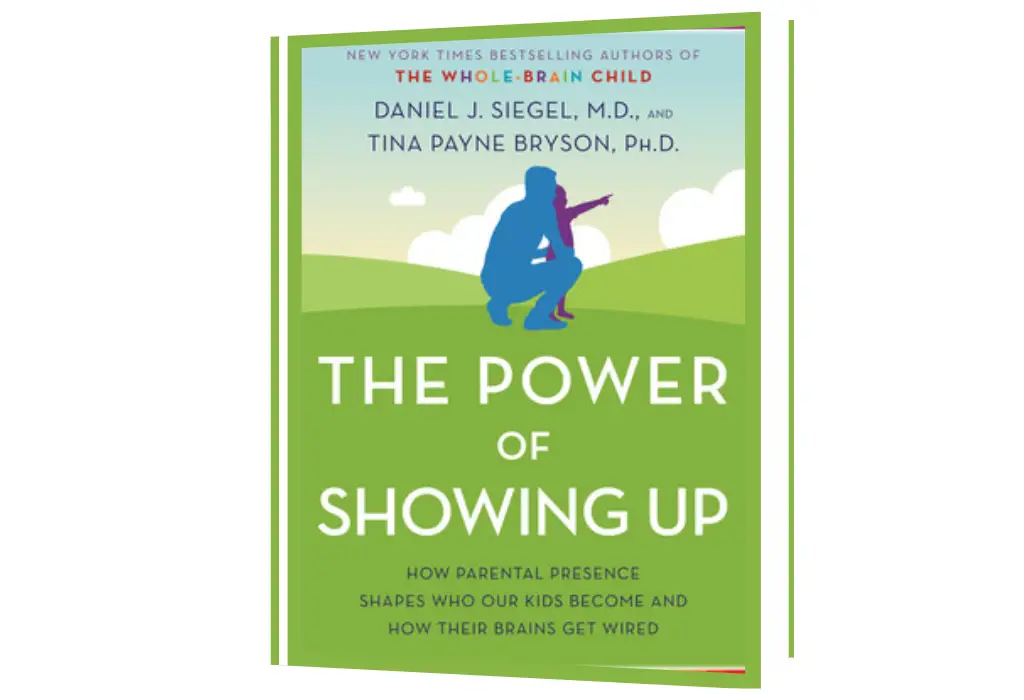What’s the one thing a parent can do to make the most difference in the long run? The research is clear: Show up! Now the bestselling authors of The Whole-Brain Child and No-Drama discipline explain what this means for childhood.
One of the very best scientific predictors for how any child turns out–in terms of happiness, academic success, leadership skills, and meaningful relationships–is whether at least one adult in their life has consistently shown up for them. In an age of scheduling demands and digital distractions, showing up for your child might sound like a tall order. But as bestselling authors Daniel Siegel and Tina Payne Bryson reassuringly explain, it doesn’t take a lot of time, energy, or money. Instead, showing up means offering a quality of presence. And it’s simple to provide once you understand the four building blocks of a child’s healthy development. Every child needs to feel what Siegel and Bryson call the Four S’s:
–Safe: We can’t always insulate a child from injury or avoid doing something that leads to hurt feelings. But when we give a child a sense of safe harbor, she will be able to take the needed risks for growth and change.
–Seen: Truly seeing a child means we pay attention to his emotions–both positive and negative–and strive to attune to what’s happening in his mind beneath his behavior.
–Soothed: Soothing isn’t about providing a life of ease; it’s about teaching your child how to cope when life gets hard, and showing him that you’ll be there with him along the way. A soothed child knows that he’ll never have to suffer alone.
–Secure: When a child knows she can count on you, time and again, to show up–when you reliably provide safety, focus on seeing her, and soothe her in times of need, she will trust in a feeling of secure attachment. And thrive!
Based on the latest brain and attachment research, The Power of Showing Up shares stories, scripts, simple strategies, illustrations, and tips for honoring the Four S’s effectively in all kinds of situations–when our kids are struggling or when they are enjoying success; when we are consoling, disciplining, or arguing with them; and even when we are apologizing for the times we don’t show up for them. Demonstrating that mistakes and missteps are repairable and that it’s never too late to mend broken trust, this book is a powerful guide to cultivating your child’s healthy emotional landscape.
The image you’ve uploaded is of the book **”The Power of Showing Up: How Parental Presence Shapes Who Our Kids Become and How Their Brains Get Wired”** by Daniel J. Siegel, M.D., and Tina Payne Bryson, Ph.D.
Key Theme:
The book emphasizes the importance of a parent’s presence in a child’s life and how consistent, loving, and attentive presence shapes a child’s emotional and psychological development. The authors argue that simply “showing up” for your child is one of the most significant factors in determining how they turn out as adults.
Key Takeaways:
– Presence over Perfection: The book stresses that parents don’t need to be perfect. What matters most is their willingness to be present, to repair mistakes, and to show up consistently for their child.
– Attachment and the Brain: Siegel and Bryson explain how attachment relationships directly influence how the brain develops, especially in the early years of a child’s life.
– Practical Strategies: The authors provide practical advice on how to apply the Four S’s in daily parenting, including how to respond when things go wrong, and how to foster a secure attachment even in the midst of busy, stressful lives
:
“The Power of Showing Up” is a guide for parents to understand the profound impact their presence can have on their child’s development. It emphasizes that by consistently meeting their child’s needs for safety, being seen, soothed, and feeling secure, parents can help their children grow into emotionally healthy and resilient adults.
This book is particularly valuable for parents, caregivers, and educators who want to nurture secure and strong relationships with the children in their lives. Get Ebook below







